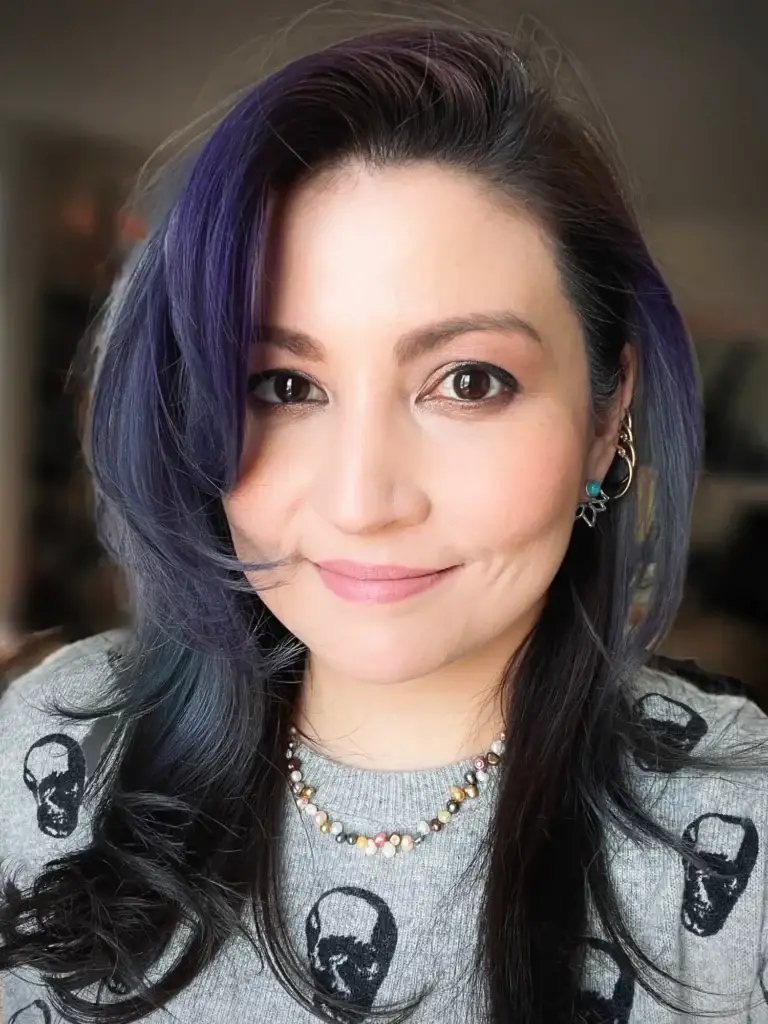How to Overcome Intrusive Thoughts:
Practical Strategies for Managing OCD Symptoms
Intrusive thoughts are unwanted, involuntary thoughts that can be distressing and difficult to manage, especially for individuals with Obsessive-Compulsive Disorder (OCD). These thoughts can be disturbing and can significantly impact daily life. However, with the right strategies, it is possible to reduce their intensity and frequency. This article explores 10 practical strategies for overcoming intrusive thoughts and managing OCD symptoms effectively.
Understanding Intrusive Thoughts
What Are Intrusive Thoughts?
Intrusive thoughts are sudden, involuntary thoughts that can be disturbing or distressing. They often involve themes of violence, harm, sexual content, or other taboo subjects. While everyone experiences intrusive thoughts occasionally, individuals with OCD find these thoughts more persistent and distressing.
How Intrusive Thoughts Affect OCD Sufferers
For those with OCD, intrusive thoughts can lead to compulsions – repetitive behaviors or mental acts performed to reduce anxiety. These compulsions can become time-consuming and interfere with daily functioning.
Practical Strategies for Managing Intrusive Thoughts
Cognitive Behavioral Therapy (CBT)
Exposure and Response Prevention (ERP)
ERP is a type of CBT specifically designed for OCD. It involves gradually exposing oneself to the thoughts, images, or situations that trigger anxiety and then refraining from performing the compulsive behavior. Over time, this helps reduce the anxiety associated with intrusive thoughts.
Cognitive Restructuring
This technique involves identifying and challenging irrational thoughts and beliefs. By recognizing that intrusive thoughts do not reflect reality or intent, individuals can reduce the power these thoughts hold over them.
Mindfulness and Meditation
Mindfulness involves staying present in the moment and observing thoughts without judgment. Regular mindfulness meditation can help individuals detach from their intrusive thoughts and reduce their emotional impact.
Acceptance and Commitment Therapy (ACT)
ACT encourages individuals to accept their thoughts and feelings rather than fighting them. By focusing on values and committed actions, individuals can lead a fulfilling life despite the presence of intrusive thoughts.
Lifestyle Changes
Regular Exercise
Physical activity can reduce anxiety and improve overall mental health. Exercise releases endorphins, which are natural mood lifters, and can help distract from intrusive thoughts.
Healthy Diet
A balanced diet rich in nutrients supports brain health and can improve mood and energy levels. Avoiding caffeine and sugar can also help reduce anxiety symptoms.
Adequate Sleep
Poor sleep can exacerbate anxiety and intrusive thoughts. Establishing a regular sleep routine and creating a restful environment can improve sleep quality and reduce OCD symptoms.
Support Systems
Therapy and Counseling
Professional support from a therapist specializing in OCD can provide guidance and personalized strategies for managing intrusive thoughts.
Support Groups
Connecting with others who experience similar struggles can provide comfort and practical advice. Support groups offer a sense of community and understanding.
Other Tools to Help Manage Intrusive Thoughts & OCD
- Thought Records
Keeping a thought record involves writing down intrusive thoughts and then challenging them with rational responses. This practice can help diminish the power of these thoughts over time. - Distraction Techniques
Engaging in activities that require concentration, such as puzzles, reading, or hobbies, can help divert attention away from intrusive thoughts. - Medication
Selective Serotonin Reuptake Inhibitors (SSRIs)
SSRIs are commonly prescribed for OCD and can help reduce the frequency and intensity of intrusive thoughts. Consulting a psychiatrist can determine if medication is a suitable option. - Combination of Therapies
Combining medication with therapies like CBT or ERP can enhance treatment effectiveness and provide comprehensive support for managing OCD symptoms.
Overcoming intrusive thoughts and managing OCD symptoms is a challenging but achievable goal. By implementing these practical strategies, individuals can reduce the impact of intrusive thoughts and lead a more fulfilling life. Remember, seeking professional help and support from loved ones is crucial in this journey. With persistence and the right approach, it is possible to regain control and live a life less dominated by intrusive thoughts.
Ready to Start Therapy?

Frequently Asked Questions
About Online Therapy at Mind by Design Counseling
Where are you located? I need a therapist near me
We are fully online, which means that your therapy sessions will be help via video call on our HIPAA compliant Platform. Anyone in New Jersey can access our therapy services
How do I get started as a new client?
New Clients can reach out to us directly via call, text or email here:
Does my insurance cover my visits?
We provide”Courtesy Billing” for clients who are using the Out-of-network insurance benefits.
Our Insurance Page shares a small blurb about Why We Left Insurance Panels
What are out-of-network benefits?
When using OON benefits, patients typically pay the full cost of the treatment upfront and then file a claim with their insurance company for reimbursement. The amount of reimbursement can vary depending on the plan, but it can sometimes be as high as 90%. Call your insurance to see if you have OON benefits or click here to call us and we can check for you!
Is Online Therapy As Effective As In-Person Therapy?
Online therapy is essentially face-to-face counseling, just conducted remotely. Studies show that tele-therapy is as effective as traditional counseling. Professional organizations and state governments recognize its benefits and have set regulations for it. However, like any therapy, its success in achieving your goals isn’t guaranteed. It’s important to discuss with your therapist whether tele-therapy is working for you.
How Should I Prepare for My First Session?
Showing up is all that you need to do! But if you really want to get the most out of session, it could help to take some time to think about what you want from therapy. It helps to write down your goals, questions you have or things that you feel are important to share.
Do you offer traditional talk therapy?
of course! though we have some unconventional therapy approaches, we are rooted in evidenced based practices. Talk therapy is a major player in the therapy room! See What we Treat and Integrative Services for more information
Is Virtual Counseling Suitable for Everyone?
Online therapy might not be as effective for individuals with chronic suicidal thoughts, severe trauma, significant mental health history, or those recently in intensive care. Such cases often benefit more from traditional, in-person counseling. We’ll help you decide if our online services are right for you during your intake and evaluation.
Can I Change Therapists If I'm Not Happy?
Yes, you can switch therapists to another provider within the practice, or we can provide you a referral if preferred. We want to ensure that your time and effort are well spent, and that you are getting the relief you need, that’s why we work collaboratively with each other in the practice, as well as outside therapists who we know and trust.
How Do I Know If Therapy Is Helping?
You should feel like you’re making progress. Signs it’s working include:
- Feeling comfortable talking to your therapist
- Your therapist respects boundaries
- You’re moving towards your goals
- You feel listened to
You’re doing better in life - Your self-esteem is getting better
What is your cancellation policy?
We ask that clients provide at least 24 hours notice in the event that they need to cancel to avoid the 50% cancellation fee. we understand that life happens and do our best to be flexible & reschedule.
What Geographic Areas Are Served?
Currently, we serve clients in New Jersey and are expanding to other states as telehealth laws evolve. While telehealth offers the convenience of attending sessions from anywhere, state laws require clients to be in-state during their session.
Is Online Therapy Easy to Use for Non-Tech-Savvy People?
Yes, it’s pretty simple to access sessions. You’ll need basic internet skills, such as opening and visiting the patient link sent to you via email. It’s similar to video chatting like Facetime or Zoom. We can also walk you through it on the phone the first time to ensure a strong connection
What Questions Should I Ask My New Therapist?
Feel free to ask anything. Some good questions are:
- How often will we meet?
- What do you specialize in?
- What experience do you have with my issue?
- What outcomes can I expect?
- How will I know I’m progressing?
- How long do you usually work with clients?
- How will we set my treatment goals?
What is the difference between associate therapists & fully licensed therapists?
Our Qualifications:
Our founder, Rebecca Sidoti, is a highly qualified, state-licensed therapist and supervisor with extensive training in anxiety related disorders and innovative treatment such as Ketamine Therapy. Mind by Design Counseling adheres to standards set by the our governing counseling boards.
To see each providers credentials, training and licenses, visit our “Meet the Therapists” Page to learn more.
- LAC/LSW are therapists who may practice clinical work under the supervision of a fully licensed therapist.
- LPC/LCSW are therapists who have completed the necessary clinical hours post-graduation under supervision and can practice clinical work independently.














